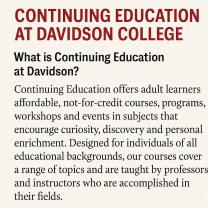What are online courses?
Online courses, also known as e-learning or distance learning, refer to educational courses that are delivered and accessed via the internet. These courses are designed to provide learning opportunities outside of traditional classroom settings, allowing individuals to study and acquire new skills from virtually anywhere with an internet connection. Online courses can cover a wide range of subjects and are offered by educational institutions, universities, organizations, and online learning platforms.
Key features of online courses include:
Internet-Based Learning: Online courses rely on the internet for content delivery, communication, and interaction between students and instructors.
Flexible Schedule: Participants can access course materials and complete assignments at their own pace, offering flexibility for individuals with work, family, or other commitments.
Multimedia Content: Courses often incorporate a variety of multimedia elements, such as videos, interactive quizzes, discussion forums, and digital resources.
Diverse Subjects: Online courses cover a broad spectrum of subjects, ranging from academic disciplines (e.g., mathematics, history) to professional development (e.g., programming, digital marketing).
Global Accessibility: Participants from around the world can enroll in online courses, allowing for a diverse and global learning community.
Various Formats: Online courses can take different formats, including fully self-paced courses, instructor-led courses with specific start and end dates, and blended learning options that combine online and in-person components.
Assessment and Certification: Most online courses include assessments (quizzes, assignments, exams) to evaluate participants' understanding of the material. Successful completion may lead to certificates, diplomas, or other credentials.
Interaction and Collaboration: Many online courses facilitate interaction among participants through discussion forums, group projects, and live webinars, fostering a sense of community despite the virtual environment.
Popular platforms that offer online courses include:
Coursera: Offers courses from universities and organizations worldwide, covering a wide range of subjects.
edX: A platform for education and learning founded by Harvard and MIT, offering a variety of courses from universities and institutions.
Udacity: Focuses on technology-related courses, including programming, artificial intelligence, and data science.
Khan Academy: Provides free online courses and lessons in various subjects for learners of all ages.
LinkedIn Learning: Offers professional development courses, including business, technology, and creative skills.
Skillshare: A platform for creative courses, including design, photography, and writing.
Whether you're looking to enhance your skills, pursue a degree, or explore a new interest, online courses provide a flexible and accessible way to engage in learning.
Online Courses: Your Ticket to Learning Without Limits
In today's digital age, Online Courses have revolutionized education, offering flexible and accessible learning opportunities. Let's explore their defining characteristics, how they differ from traditional settings, their numerous advantages, evolving landscape, and diverse formats:
1. Defining Online Courses and their Characteristics:
Online Courses are structured educational programs conducted primarily through online platforms. Key characteristics include:
- Flexibility: Learn at your own pace and schedule, regardless of location, time zone, or physical limitations.
- Accessibility: A plethora of courses are available at various costs and difficulty levels, catering to diverse learners.
- Interactive learning: Utilize various multimedia elements like video lectures, interactive exercises, quizzes, and discussion forums.
- Technology-driven: Access materials and interact with instructors and peers through online platforms and learning management systems.
- Self-directed learning: Develop independent learning skills and take ownership of your educational journey.
2. Online vs. Traditional Learning:
While both traditional classroom and Online Courses offer valuable learning experiences, they differ in key aspects:
- Delivery: Traditional classes involve physical attendance and face-to-face interaction with instructors. Online courses offer asynchronous or synchronous learning through digital platforms.
- Structure: Traditional courses often have fixed schedules and in-person activities. Online courses offer more flexibility in timing and format, with some self-paced and others following set schedules.
- Engagement: Traditional courses rely on physical presence and group activities. Online courses utilize interactive tools, forums, and collaborative projects to foster engagement.
- Cost: Traditional courses typically have higher tuition fees and associated costs like transportation and housing. Online courses can be more affordable and potentially reduce associated expenses.
3. Advantages of Online Courses:
The benefits of pursuing Online Courses are numerous:
- Flexibility: Learn anytime, anywhere, adapting to your busy schedule and personal needs.
- Accessibility: Overcome geographical constraints and access a wider range of courses and institutions.
- Reduced costs: Save on tuition, transportation, and other expenses compared to traditional programs.
- Variety of formats and learning styles: Choose from self-paced modules, live interactive sessions, video lectures, and blended learning combinations.
- Enhanced learning tools: Utilize multimedia elements, interactive exercises, and online resources for deeper understanding.
- Develop self-directed learning skills: Take ownership of your learning journey and build personal responsibility.
4. Evolution of Online Courses:
Online Courses have come a long way, constantly adapting to meet learner needs:
- Early days: Text-based modules and basic email communication dominated the landscape.
- Multimedia era: Video lectures, interactive learning tools, and discussion forums enhanced engagement and accessibility.
- Mobile learning: Courses optimized for mobile devices allow learning on the go.
- Artificial intelligence: AI-powered chatbots and personalized learning paths are being explored to individualize the learning experience.
- Micro-credentials and bite-sized learning: Short, focused courses provide targeted skills development and flexible learning options.
5. Formats of Online Courses:
A diverse range of Online Course formats caters to different learning preferences:
- Self-paced courses: Access pre-recorded materials and complete modules at your own pace.
- Live online sessions: Participate in real-time lectures, discussions, and Q&A sessions with instructors and peers.
- Blended learning: Combine online modules with physical classroom sessions for a mix of flexibility and in-person interaction.
- Micro-credentials: Focus on specific skills through short, intensive courses.
- Massive Open Online Courses (MOOCs): Large-scale online courses with open access to free or low-cost materials.
Choosing the right Online Course format depends on your learning style, schedule, and goals. Explore the diverse options and find the path that best suits your individual needs to embark on your online learning journey!
I hope this comprehensive overview illuminates the world of Online Courses and empowers you to make informed choices for your educational future. Remember, online learning holds the potential to democratize education and offer enriching experiences for everyone. So, dive in and unlock the limitless possibilities of learning without boundaries!












